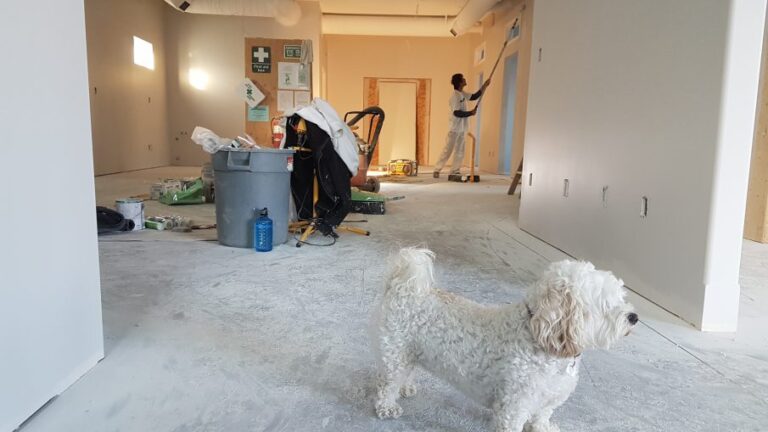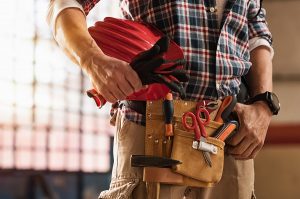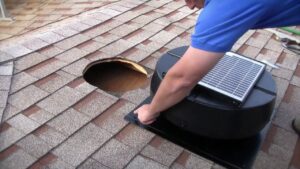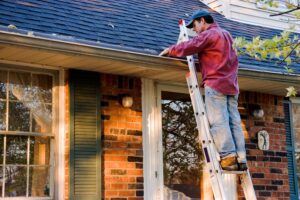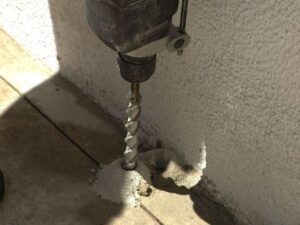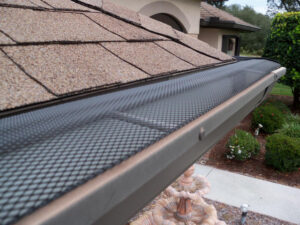Countless people, when working on their homes, stop to consider, “do I need a permit for this?” Others, who may be a little more thoughtful toward this and wondered if what they were doing requires a permit. By the end of this article, there should be no question as to if and when a permit needs to be applied for when working on projects around your home.
Please note that this article cannot provide all the information for all the jurisdictions, as each one may have their own interpretations and requirements. As an example, with Electrical codes, there is an overall National Electrical Code. This is the base requirement for all electrical systems within the United States and its territories. The state you live in may have amendments that add to this code, that is required for all who are within that state. The same works down to counties and cities.
What is a permit, anyways?
A building permit, according to Dictionary.com, is “an official certificate of permission issued by local authorities to a builder to construct, enlarge, or alter a building”. It is a certificate that is applied for by the homeowner or contractor and has to be approved by Code Enforcement, or the local Authority Having Jurisdiction (AHJ). When the work is completed, an inspector will come out and say whether the work done is safe and in compliance with the building codes.
Most mid-size to large municipalities across the United States have their own enforcement offices, while most rural areas depend on the state to enforce construction codes. In Canada, you can visit the Canada Business Network and scroll down to your Province for more details.
Types of permits
Among all the projects that you can do around your home, these are the different types of permits that may need to be acquired:
- Building – Structures, foundations, accessibility, etc.
- Electrical – Lighting, power outlets, breaker boxes, fire alarms and security systems, networking, etc.
- Mechanical – Heating, ventilation, air conditioning (HVAC), gas appliances, etc.
- Plumbing – Commodes, sinks, faucets, water connections to appliances, etc.
Building permits are required under a few circumstances, which actually entails a lot of different projects. Obviously new buildings require permits. But work such as relocating walls, renovations or a small extension like a pergola or verandah can also require a local council permit.
Electrical permits are required when any alterations or upgrades to the existing system are made, such as adding wall sockets and change out the breaker box to a larger one. Minor repairs do not always require permitting; however, it is a good idea to find out prior to performing the work.
Mechanical permits will be required anytime work is done that concerns outside ventings, such as dryer vents, flues for gas equipment, or alterations or repairs to any gas lines within the home.
Plumbing permits will be required if any alterations or installations are made to water connections, drains and sewage, etc. Replacing fixtures such as showerheads or faucets do not normally require permits.
Why permits are important
Permits are important for a few reasons. For one, safety. Codes are written to ensure public safety. Having been an electrician for over two decades, I have seen many times when wiring has been installed or changed that had ended up in house electrical fires. Had the wiring been installed to code, this could have been prevented.
Not only are electrical permits important, but think about the structure of your home. Adhering to building codes can allow peace of mind that the roof over your head is stable, and can withstand storms and weather that is predominant to the region you live in. For instance, homes in the Gulf region are built to withstand hurricanes, while homes in the northern region are built to guard against the harsh winters. These homes are not built the same.
Want to make sure the gas piping is installed leak-free and is vented properly to allow the harmful fumes to exit your home safely? Mechanical permits will require the right inspectors to check that the work is done for these systems to do what they are supposed to do.
Who can get these permits?
Some code enforcement offices will allow a homeowner to pull their own permits, so long as no one is getting paid to do the work. Some agencies require the homeowner to take a simple test pertaining to the work before they are allowed to do so. Still, some other municipalities require all work to be done through licensed contractors.
Hiring a licensed contractor may be the route to go, depending on the size and depth of the project. This puts the liability on them, and they will coordinate with code enforcement the inspections and other logistics involved.
The best thing to do is to contact your local authority to find out their requirements.
How do I know if a permit is required?
Some projects you do around your home require permitting, and some do not. Listed above with the permit descriptions are some examples of projects that require them.
Here is a quick list of project examples that require permits:
- Removing or altering walls
- Almost any work on electrical systems
- Adding or removing water outlet
- Altering sewage drains in any way
- Any work done with the gas piping and venting
- Installing or altering heating/air conditioning systems/ductwork
With this list comes some examples of projects you do not need permits for:
- Replacing light fixtures
- Replacing electrical wall outlets
- Painting/wall repairs
- Exterior siding repairs/replacement
- Detached buildings less than 200 square feet
- Porches and decks (depending on local council and area)
- Prefabricated swimming pools less than 24 inches deep
A side note: if you are planning home improvement projects for your home, planning and managing these can be made easy using affordable home management software.
Remember, if there is any doubt or question, don’t hesitate to contact your local code enforcement office for clarity and guidance. They are there to help keep you and your home safe.
Conclusion
I hope that by now you feel comfortable knowing about permits and why they are important. They only help to enforce that the wok done is safe and in compliance. Please feel free to leave comments or ask any questions you may have below.
Walt moonlights as a handyman after getting off his busy job as a commodities trader. He enjoys writing about all things related to DIY, home improvement, etc.

